5 Memorable Isabel Allende Quotes [Quote Graphic]
Chilean-American author and journalist Isabel Allende has written many popular novels, including The House of the Spirits, City of the Beasts and Eva Luna.
Born in Peru, Allende’s father was the cousin of Salvador Allende, the Chilean president from 1970 to 1973. After a coup overthrew Allende and installed Augusto Pinochet as head of the military junta, Isabel Allende fled for her life to Venezuela, where she lived for 13 years. In Venezuela, Allende worked as a journalist for a prominent national newspaper.
Allende’s most well-regarded novel is probably The House of the Spirits, which has been compared with Gabriel Garcia Marquez’s One Hundred Years of Solitude for its magical realist elements and fictional-historical view of Latin America.

Isabel Allende at Frankfurt Book Fair 2015 by Lesekreis, via Wikimedia Commons
Today, Isabel Allende is widely regarded as one of the leading feminists of the literary world. Allende mentions her deceased daughter Paula as one of her greatest inspirations, as Paula volunteered as a psychologist and teacher to help young girls and women. In her daughter’s honor, Allende established the Isabel Allende Foundation, which supports women’s empowerment non-profits in Chile and California.
The instability of Allende’s childhood deeply influenced her writing, which largely focuses on the lives of marginalized people and themes of social justice, freedom, love and violence. Read on for some of the best Isabel Allende quotes as well as a list of five of her best works!
Our Favorite Isabel Allende Quotes
Here are just five of our favorite Isabel Allende quotes on topics like death, love, and writing.
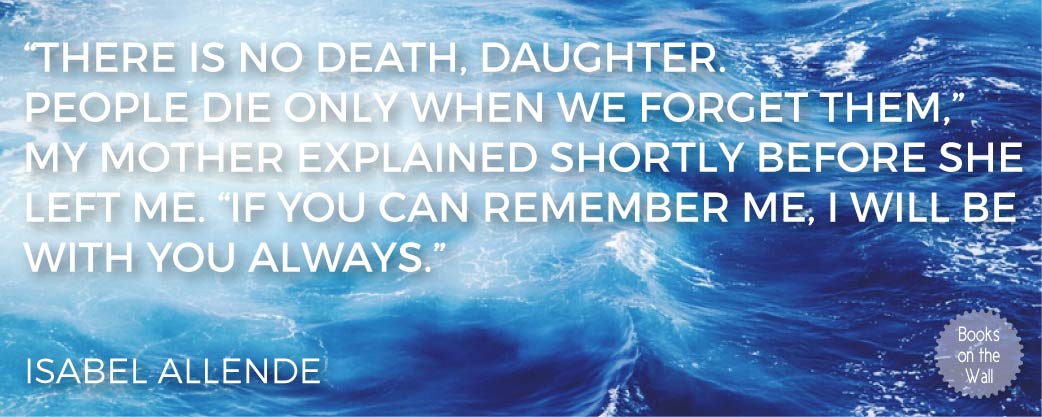
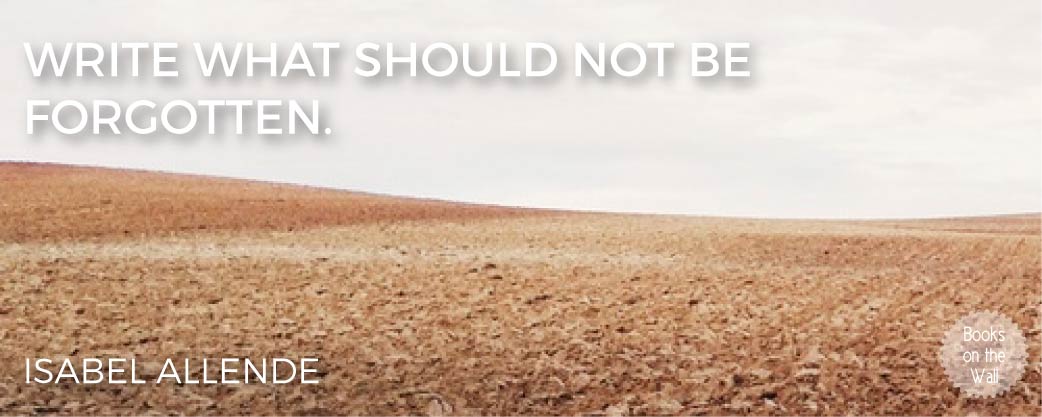
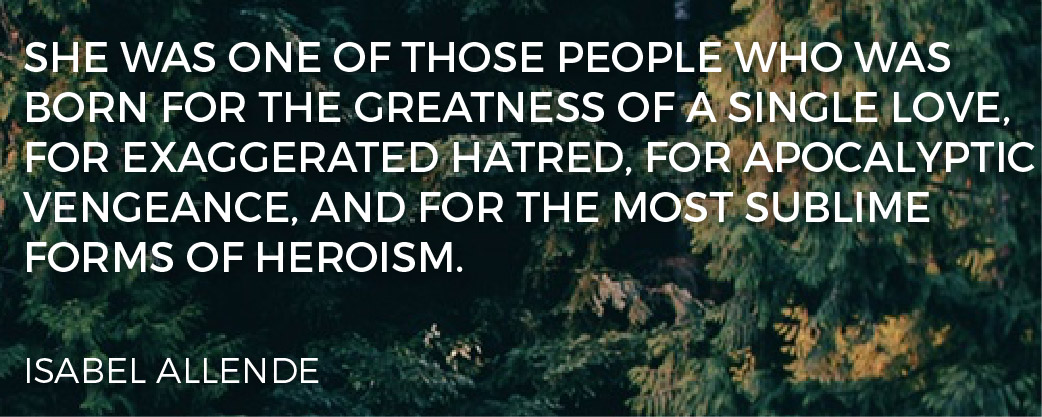
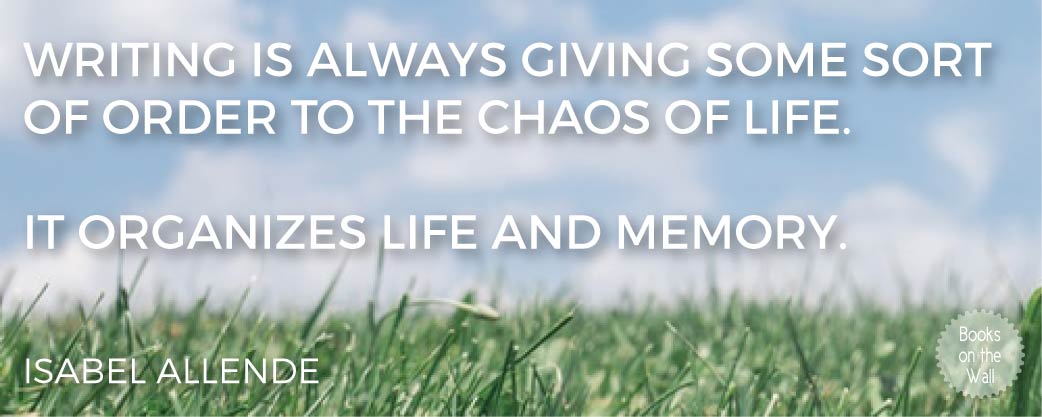

And for your convenience, here are those same quotes in text form:
“There is no death, daughter. People die only when we forget them,” my mother explained shortly before she left me. “If you can remember me, I will be with you always.”
Isabel Allende
Write what should not be forgotten.
Isabel Allende
She was one of those people who was born for the greatness of a single love, for exaggerated hatred, for apocalyptic vengeance, and for the most sublime forms of heroism.
Isabel Allende
Writing is always giving some sort of order to the chaos of life.
It organizes life and memory.
Isabel Allende
You are the storyteller of your own life, and you can create your own legend, or not.
Isabel Allende
Now that we’ve explored some of our favorite Isabel Allende quotes, let’s take a deeper look into her life and work.
About Isabel Allende
Isabel Allende is one of the most critically acclaimed and commercially successful Latin American authors in contemporary literature.
Born in 1942 in Lima, Peru, Allende overcame numerous setbacks in her early life to eventually become a successful journalist in Chile. When General Pinochet came to power in Chile, Allende fled to Venezuela and began writing fiction in earnest. Her first book, The House of the Spirits, became an instant international bestseller when it was released in 1982. Ever since then, Allende’s books have been translated into dozens of languages and have sold in the millions around the world. Today, Allende is an American citizen and resides in the state of California.
Five of the Best Isabel Allende Novels
In this article, we’ll explore five of Allende’s more popular books in greater detail. Any of the novels listed below are great introductory works for anyone new to Allende’s fictional universe.
The House of the Spirits
As mentioned above, The House of the Spirits (Spanish: La Casa de los Espíritus) is Allende’s first major work. Allende based this novel on letters she wrote to her dying Chilean grandfather in the early 1980s. Once she finished her manuscript, it took Allende a couple of months before a publishing house in Buenos Aires finally decided to publish this novel. Ever since it was released in 1982, this novel has become a global phenomenon and has been translated into almost 40 languages. The House of the Spirits remains Allende’s most studied and celebrated work.
Along with all Jorge Luis Borges‘s fiction and Gabriel García Márquez’s One Hundred Years of Solitude, The House of the Spirits is often required reading in courses on Latin American literature or magical realism. The novel follows a Chilean family named Trueba over three generations. Allende deftly weaves together the overall history of post-colonial Chile through the personal struggles and joys of the Trueba family. The novel is mainly told through the perspectives of the family patriarch Esteban and his fiery granddaughter Alba.
As with any good magical realist work, there is a touch of the supernatural in Allende’s classic first novel. There’s also a strong feminist critique of male dominance in Latin American culture. Without a doubt, The House of the Spirits is one of the greatest novels in the Chilean literary canon. If you only have enough time to read one of Allende’s works, definitely make this the one you read from cover to cover.
Eva Luna
Isabel Allende’s fourth published novel is called Eva Luna (1987). The title character and first-person narrator of this work is the daughter of a professor’s assistant and a dying Indian gardener. Orphaned at the age of six, Eva is forced to confront the harsh realities of life from an early age. The one thing that helps Eva through all of her difficult circumstances is her strong imagination.
The rest of the novel consists of character portraits of various people that come into Eva’s life. A few of the more memorable characters include Eva’s alcoholic godmother, a transsexual pimp named La Señora, and a refugee from post-WWII Europe named Rolf Carlé.
Like almost all Allende’s work, Eva Luna seamlessly blends the personal and the political. As we learn about Eva Luna’s struggles and relationships, we become more aware just how much the political turmoil of Latin America determines the lives of its citizens. Also typical of Allende’s fiction, there’s a strong feminist critique of patriarchal authority in this text.
While the politics described in the novel bear a resemblance to Chile, some literary critics believe Allende’s scenic descriptions suggest the novel takes place in Venezuela. All that we know for certain is that this novel takes place somewhere in South America.
Most people who read Eva Luna say this text is more like a picturesque novel/interlinked short story collection rather than a straight Bildungsroman. So, if you like character studies, then you’re bound to love in this text.
City of the Beasts
Published in 2002, City of the Beasts (Spanish: La Ciudad de las Bestias) was Allende’s first work for young adults. Allende says her three grandchildren pestered her for months to write a work for a younger audience. It’s a good thing Allende listened to her grandchildren because City of the Beasts remains one of the author’s most commercially successful works.
Alexander Cold, a young teenager, is the protagonist of this fascinating tale. At the start of the story, Alex is forced to live with his grandmother in New York City while his mother undergoes cancer treatment. Shortly after Alex arrives at his grandmother’s apartment, he has to pack his clothes up yet again for a trip to the Amazon Rainforest. Alex’s grandmother tells him they’re going on an important investigation with the magazine International Geographic in search of mysterious “Beasts.”
While on the voyage, Alex and his new friend Nadia are greeted by interesting beings known as People of the Mist. The two are then led to a traditional Amazonian ceremony where both undergo various spiritual transformations and rites of passage. The expedition team later discovers more about the true nature of the Beasts and how they help the Natives survive.
Although written for children, this work has some heavy themes including a critique of Western science, the meaning of ritual, the importance of spirituality, and the nature of memory. Not every literary critic enjoyed this book, but most said it was a good first attempt at a children’s novel.
City of the Beasts was so successful with the public that Allende decided to make this book the first part of a trilogy. The second and third books in this series are called Kingdom of the Golden Dragon and Forest of the Pygmies. Walden Media bought the rights for all three of these stories, however they haven’t said anything about making film adaptations in the near future.
Paula
Allende’s 1994 memoir Paula is one of the author’s most personal and emotional books.
Just like The House of the Spirits, this work began as a letter to a dying family member. This time, however, Allende was writing a letter to her daughter Paula Frías Allende. At the time of this memoir’s composition, Paula was battling a rare disease that put her into a coma. Isabel Allende wrote her letter to explain everything that was going on while Paula was unconscious. Unfortunately, Paula never emerged from her coma to read this letter. She passed away in 1991 at the age of 28.
Most of Paula consists of details about Allende’s daughter’s stay in the hospital and Isabel’s personal struggles during this time. To get a greater understanding of this memoir, it’s a good idea to read The House of the Spiritsfirst off, since Allende references the book a great deal in Paula.
Obviously, major themes in this text include impermanence, grief, and faith. Some of the pivotal moments in the memoir occur in conversations between Isabel and her brother Juan, who is also a priest.
Allende had Paula with her first husband Miguel Frías. She also had a son named Nicolás with Miguel in 1966. Frías and Allende split up in 1987, but she married a lawyer named Willie Gordon in 1988. Sadly, Gordon’s two children from a previous relationship passed away while Allende was married to him. Allende and Gordon got divorced in 2015. Shortly after Paula’s death, Isabel Allende set up the Isabel Allende Foundation to help the plight of disadvantaged women around the world.
The Japanese Lover
The Japanese Lover (Spanish: El Amante Japonés) is an interesting work in Allende’s oeuvre because it doesn’t take place in Latin America. Instead, most of this novel takes place in Allende’s adopted city of San Francisco during World War II.
Before we get to San Francisco, however, we are transported back to 1939 Warsaw. As the German troops march into Poland, a young Jewish girl named Alma Belasco is sent to San Francisco to escape the concentration camps. While living in her aunt’s San Francisco mansion, Belasco meets a Japanese man by the name Ichimei Fukuda. The two instantly fall in love.
When the Imperial Japanese bomb Pearl Harbor, Fukuda is taken away to the US internment camps for Japanese citizens. Although Belasco meets Fukuda on a few occasions, they both have to hide their love from the world around them.
In the second half of this work, Allende takes us a few decades into the future. Belasco is now in a nursing home tended to by her grandson and a care worker. Suddenly, Belasco starts receiving strange letters from Fukuda. Could Fukuda’s love have endured for all those years? What happened to Fukuda after his release from the internment camps? Both Alma’s grandson and care worker are tasked with answering these questions as the novel draws to a close.
Isabel Allende showcases her mastery of epic storytelling in this 2015 New York Times bestseller. The novel is just as fresh and ambitious as her very first works. Anyone who loves a good romance or historical fiction will probably read through The Japanese Lover in just a few sittings.
Suggestions for Further Allende Reading
Isabel Allende is one of those rare authors who have reached critical and commercial success…while she’s still alive! You can find out more about Allende in this interview with National Geographic:
Just a few of Allende’s prestigious awards include:
- The Presidential Medal of Freedom
- The Hispanic Heritage Award in Literature
- The Hans Christian Andersen Literature Award
Besides Pablo Neruda, Isabel Allende is now the most respected voice in Chilean literature. For people who’ve read the above five works and want to continue their search for inspiring Isabel Allende quotes, there are plenty of other books to check out. A few titles to add to your Allende reading list include The Daughter of Fortune, Portrait in Sepia, and her most recent work In the Midst of Winter.


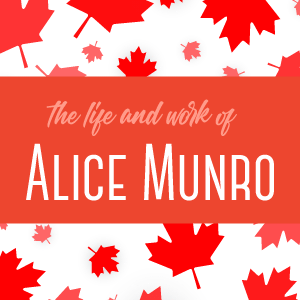

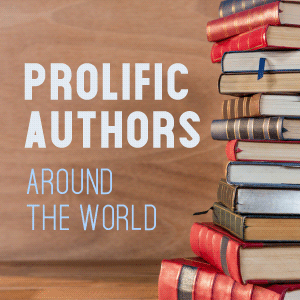
Leave a Reply
Be the First to Comment!